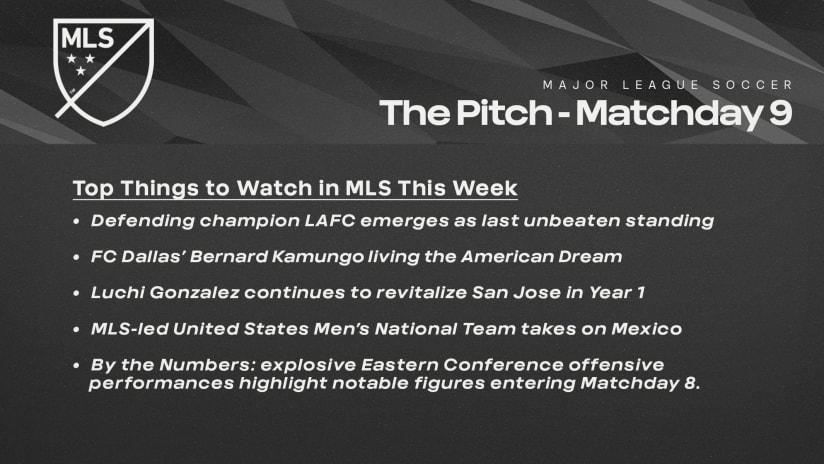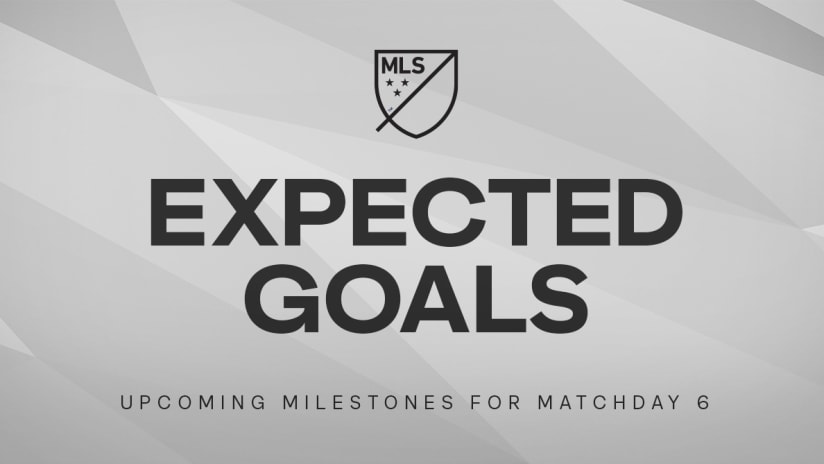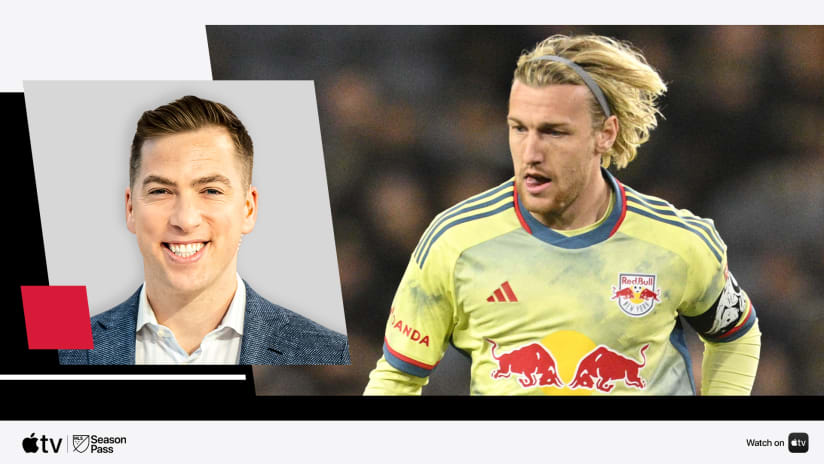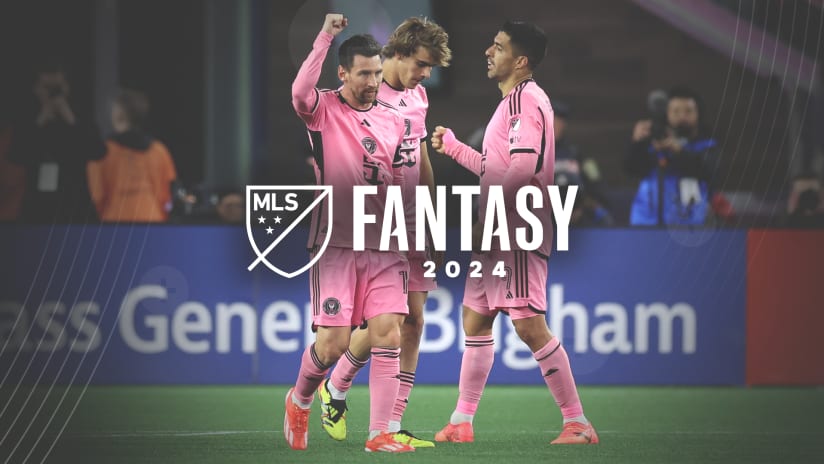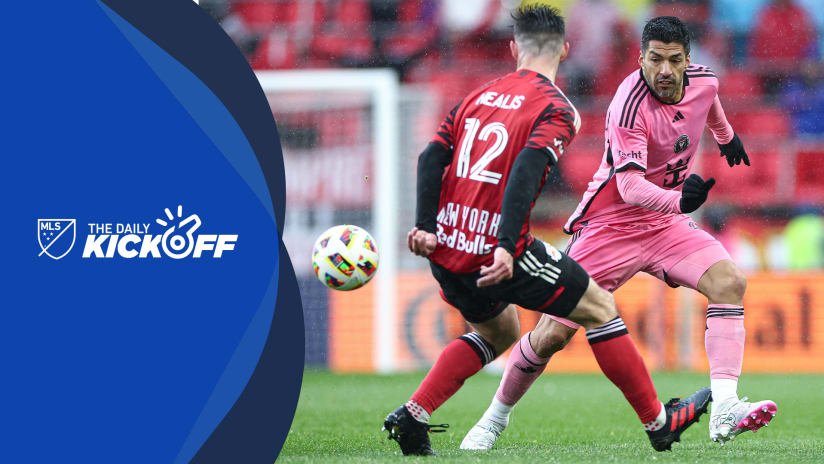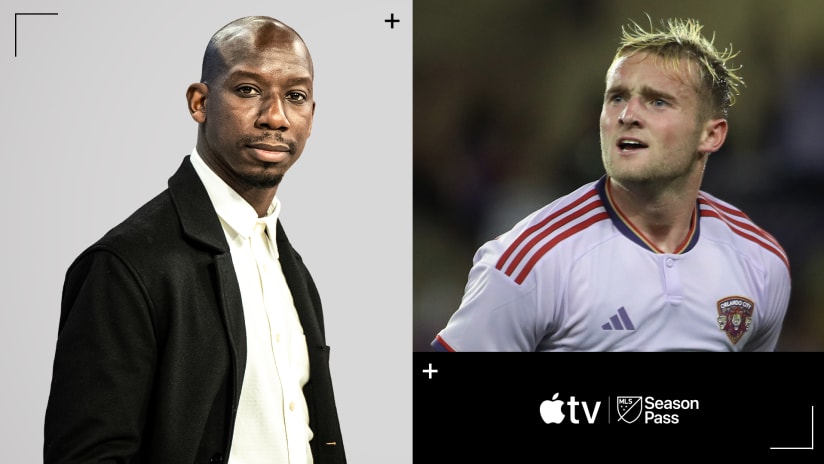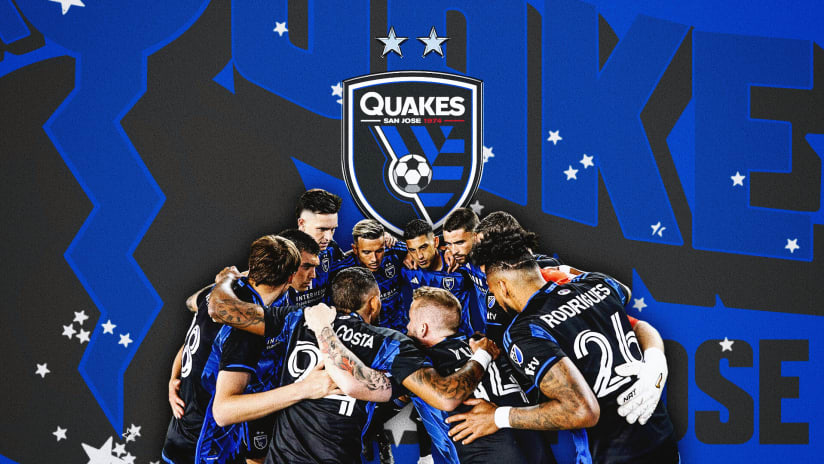Cardiac Clearance
MLS has established a cardiac screening program that consists of a cardiac decision tree clearance within the Entrance Physical Examination performed annually and electrocardiogram (ECG) and echocardiogram screening biennially.
Under the direction of MLS consulting cardiologist, Dr. Matthew Martinez, MLS Clubs implement the MLS cardiac screening program that includes cardiac screenings and ECG and echocardiograms for all Players.
All participation and return to play decisions are made by the Club Physicians and Club Cardiologists in accordance with the current American Heart Association (AHA)/American College of Cardiology (ACC) Guidelines for sports participation. The club team doctor has the final say in consultation with the club Cardiologist. Any deviations from accepted guidelines require consultation with the league medical department.
Club Cardiologist:
Each MLS Club is required to maintain a Club Cardiologist throughout the season. The Club Cardiologist specializes in the diagnosis, treatment, and management of cardiovascular diseases with experience in sports cardiology.
The Club Cardiologist is present for and assists in pre-season physicals, provides further evaluation, treatment, and recommendations for players with abnormal history/physical exam findings/or abnormal screening ECGs, provides the interpretation of ECGs and echocardiograms, and assists in participation and return to play determinations.
Required Cardiac Screening:
All Players must participate in cardiac screening before being cleared to participate, including practice or competition, with the Club. In addition to annual pre-participation screening, all Players will undergo biennial (every two years) ECG and echocardiogram screening, with additional follow-up as indicated. Cardiac Screenings include the following:
- Annually:
- Focused American Heart Association (AHA) 14-element cardiac history and physical examination
- Biannually (every two years):
- Resting 12-lead electrocardiogram (ECG)
- Resting Echocardiogram
Emergency Preparedness
MLS, the MLS Players Association, and Club Medical Staff work collaboratively year-round to prepare for potential medical emergencies because a rapid medical response from trained individuals improves the odds of a favorable outcome.
Each Club is required to submit their On-Field Emergency Action Plan for Club venues, including practice, competition and strength training/performance, to the League before the start of pre-season training.
On-Field Emergency Response Plans are required to detail:
- Chain of command
- Roles and responsibilities
- Equipment information and location (e.g., AED, spine boards, splints)
- Communication
- Transportation
- Emergency facilities (e.g., closest hospital for cardiac, neurological or trauma)
These plans are reviewed and practiced formally prior to the season by Club Medical Staff and shared with all stakeholders. Players, coaches, officials and other staff members understand their roles as either first responders if trained or bystanders in case of an emergency, including the location of potentially life-saving equipment (e.g., AED).
Before every MLS match, the Venue Medical Director oversees a mandatory pre-match “medical time-out” meeting with medical staff from both teams, the Fourth Official, EMT staff, and additional personnel from the Club Operations and Security staff.
The “medical time-out” reviews the venue On-Field Emergency Action Plan, including introduction of staff, roles and responsibilities for different emergencies, and the outlining of methods of communication and the locations of emergency equipment and ambulances.
Required Gameday Care Team
Every game day, MLS policy requires the following to be present:
- At least two certified athletic trainers/therapists on each bench
- A physician on the home team bench
- A Venue Medical Director (VMD)
- Two ambulances (with Advanced Life Support and Emergency Medical Technicians)
In addition, visiting teams are encouraged to travel their own team physician positioned on the visiting team bench.
MLS Medical Spotter Program
Head injuries in soccer often occur at high speeds and sometimes with obstructed line of sight for Club Medical Staff. MLS has implemented programs during games to provide the Venue Medical Director and Club Medical Staff with technological assistance in early detection of the injury.
The League Spotter is a designated observer who is a medical professional trained by the League and tasked with providing an “extra set of eyes” for the Venue Medical Director / Club Medical Staff.
The League Spotter reviews live video feeds of the match (with rewind capabilities) to observe for any Mandatory or Discretionary Observable Signs of possible concussion as outlined in the MLS Head Injury / Concussion Evaluation and Management Protocol (MLS Concussion Protocol). The role of the League Spotter is to aid in the recognition of a possible head injury, not to diagnose a concussion. League Spotters are not authorized to stop the game or remove a Player from play for evaluation, instead, the Venue Medical Director and Club Medical Staff are in charge of injury assessment.
When a head injury or suspected head injury occurs , video of the injury is “clipped” by the League Spotter and sent to the Venue Medical Director who can view the feed on a monitor that is kept at the Fourth Official’s table during the match. Ideally, several views are included and the mechanism of injury as well as Observable Signs are recorded.
If a mechanism of injury is observed, and any of the Mandatory Observable Signs are identified by the League Spotter, they will communicate immediately to the Venue Medical Director that an on-field assessment is required per the MLS Concussion Protocol. When there is an on-field assessment, the Venue Medical Director must review the available video prior to allowing the Player to return to play.
If a Discretionary Observable Sign is observed, the League Spotter relays the information to the Venue Medical Director along with a video clip of the incident.
The Venue Medical Director may share this content with Club Medical Staff.
For more information about the MLS Concussion Protocol, including a list of Mandatory Observable Signs and Discretionary Observable Signs, click here.
MLS Medical Department - Meet the Experts
The MLS Medical Department is dedicated to the exceptional, individualized medical care, assessment, management and prevention of injury and illness to promote health and wellness as well as optimize performance of all Major League Soccer Players.
|
MLS Club Medical Staff Requirements
Our world-class Club Medical Staff work together to provide elite level care for MLS athletes.
Clubs must maintain the following League Mandated medical positions throughout the League season:
- Chief Medical Officer (CMO): Responsible for the treatment and care of all Players and must be involved in the day-to-day sports medicine operations for the Club. Provides oversight in injury and illness prevention strategies, administration of medications and evaluation, treatment, and rehabilitation for Players’ medical conditions.
- Orthopedic Surgeon: (May also serve as the team’s CMO if the individual is Sports Medicine fellowship trained and certified.)
- Primary Care Sports Medicine Physician: (May also serve as the CMO)
- Venue Medical Director (VMD): A physician whose primary responsibilities on game day include: Making final decisions and plan of care, in consultation with Club Medical Staff, on all emergency situations, including the evaluation of suspected head injury. The VMD serves as an impartial physician in the event the visiting Club does not have a physician on site, and as the main point of contact for the League on emergency medical matters related to the match. The VMD must be fellowship trained and certified in Sports Medicine.
- Head Athletic Trainer (HAT):
- In Canada, the position is referred to as Athletic Therapist
- Must be part of the Club’s Medical Staff on a full-time basis and dedicated only to first-team activities. Manages the day-to-day sports medicine operations for an MLS Club. In this capacity, the HAT provides injury prevention strategies, evaluation, treatment, and rehabilitation for Players’ medical problems.
- Assistant Athletic Trainer/Therapist: Must be on the Club’s Medical Staff on a full-time basis and dedicated only to first-team activities.
- Second Assistant Athletic Trainer/Therapist (3rd AT): Must be on the Club’s Medical Staff on a full-time basis and dedicated only to first-team activities
- Cardiologist
- Neuropsychologist
- Physical Therapist
- Strength and Conditioning and/or Performance Specialist
Recommended Additional Medical Staff Positions
The League Office supports enhanced specialized measures undertaken by a Club Medical Staff to protect player health and safety. In some instances, an individual can fulfill more than one of the recommended positions but cannot also occupy a League Mandated position.
- Internist
- Medical sub-specialists (e.g., physicians who specialize in neurology, pulmonary medicine, hematology/oncology, dermatology, nephrology, ophthalmology)
- Orthopedic sub-specialists (e.g., surgeons who specialize in foot, foot & ankle, hip & knee, shoulder & elbow, hand, spine)
- Clinical sports psychologist(s)
- Registered dietitian/nutritionist
- Neurosurgeon
- Additional Strength and Conditioning / Performance Specialist
- Otolaryngologist
- Pediatrician
- Dentist
- Oral & maxillofacial surgeon
- Massage therapist(s)
- Chiropractor
- Podiatrist
- Association/Relationship with imaging center
- Club Sonographer
Required Game Day Care Team
Every game day, MLS policy requires the following personnel to be present:
- At least two athletic trainers/therapists on each bench
- A physician on the home team bench;
- A Venue Medical Director (VMD); and
- Two ambulances (with Advanced Life Support (ALS) and Emergency Medical Technicians (EMT)
In addition, visiting teams are encouraged to travel with their own team physician positioned on their bench.
Required Game Day Care Team
Every game day, MLS policy requires the following personnel to be present:
- At least two athletic trainers/therapists on each bench
- A physician on the home team bench;
- A Venue Medical Director (VMD); and
- Two ambulances (with Advanced Life Support (ALS) and Emergency Medical Technicians (EMT)
In addition, visiting teams are encouraged to travel with their own team physician positioned on their bench.



